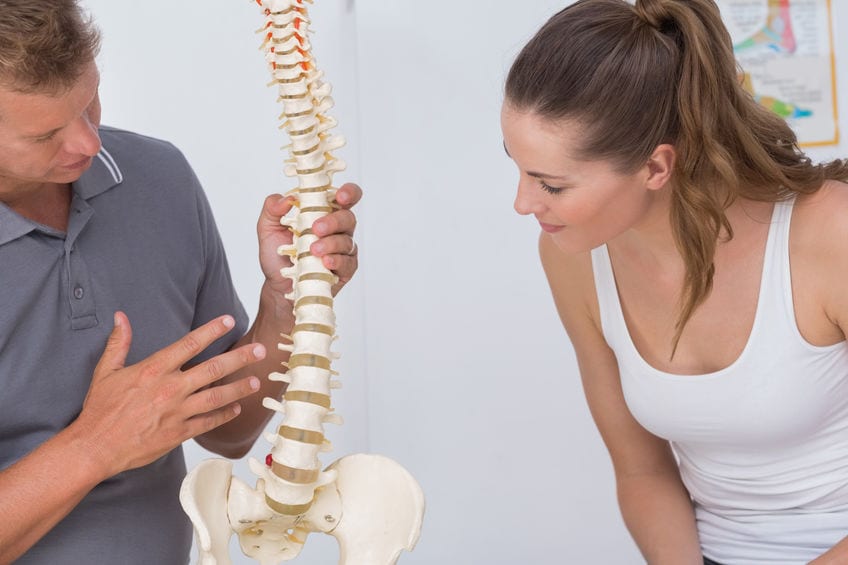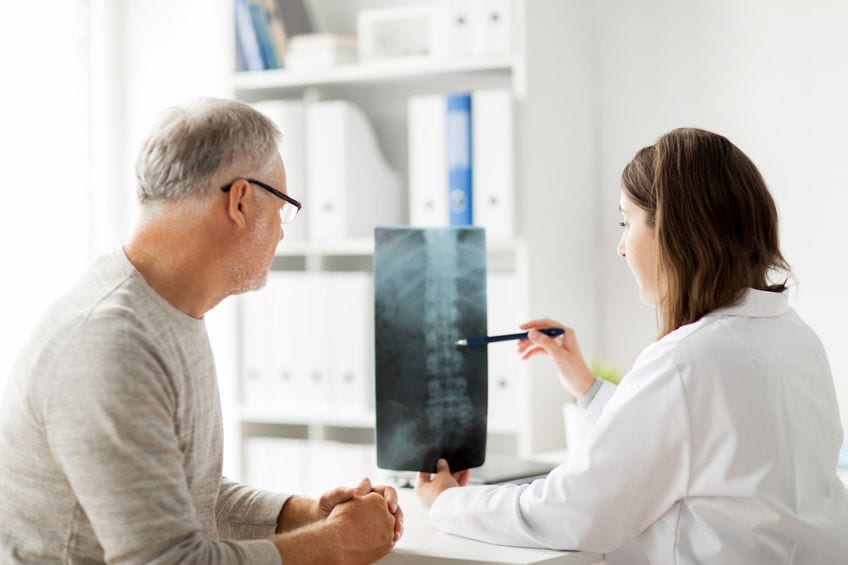Is Your Spine At Risk?
Reading Time: 2 minutesFeeling a little back pain lately? That pain could be a sign of poor spinal health. Doctors are diagnosing more and more people with spinal conditions each year. Current lifestyles and technology put spine health at even more risk. By understanding how the spine works, one can take simple steps to remain healthy.
The mechanics of the spine
Along with the brain and heart, the spine is one of the most important parts of the body. The spine connects to the brain and runs to the lower back, with nerves branching off around the body. This is a vital part of the central nervous system. Bones called vertebrae protect the spinal column. Between each vertebra are discs that act as shock absorbers and allow flexibility. Like all bones in the body, these vertebrae can weaken. Other factors can cause the discs to bulge and rub on nearby nerves, causing serious pain.
1. Improve spine health bite by bite
Bones need proper nutrients to maintain bone density and health. Critical nutrients include calcium, vitamin D, and magnesium. A change in diet can improve spinal health. Opt for more leafy greens, oily fish, nuts, and berries. These contain all the vitamins needed for a strong spine and can help recover any current spinal damage.
2. Hardcore exercise
Strengthening the core does more than make 6-pack abs. Core muscles wrap around the back, protecting the spine. Exercise decreases lower back pain and strengthens the spine. An exercise regimen comprised of abdominal exercises and weight training improves bone density and spine health with age.
3. Stand up for spine health
Most jobs today require long periods of sitting. Research links excess sitting to a range of health conditions, including high blood pressure, cholesterol, and obesity. Spending hours at the desk can increase pressure on the spine too. To improve spine health, stand and walk around every 30 minutes. Invest in a standing desk to keep working while relieving pressure off the spine. Switch up standing and sitting to keep the spine healthier for longer.
4. Lose the butt
Despite the efforts to warn society about the dangers of smoking, 34 million adults still smoke cigarettes. While the diseases caused by smoking are well recorded, poor spinal health is a surprising addition. Nicotine increases inflammation. Inflammation causes lower back issues and spinal diseases like spinal stenosis and degenerative disc disease. Persons who have undergone back surgery and still smoke reduce the chances of healing. Giving up smoking improves back health and prolongs the quality of life.0
Spine health matters
Millions worldwide suffer from spinal issues. Poor spinal health prevents persons from being active and could cost hundreds of thousands in medical bills. By making these small changes, expect a significant improvement in spine health. Speak with a spine specialist to assess spinal health and prescribe even more ways to keep that backbone strong.










